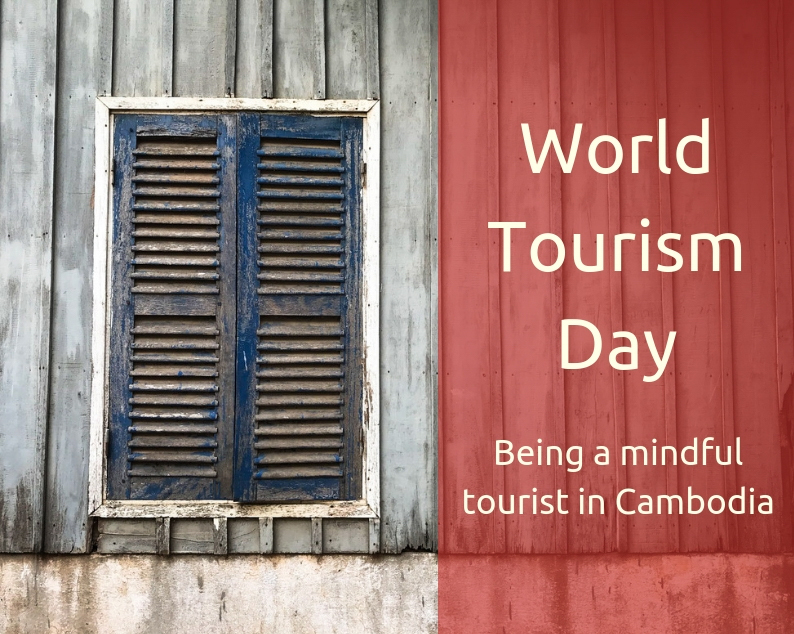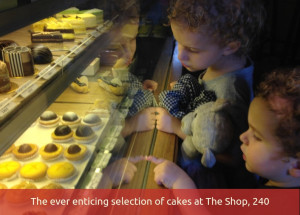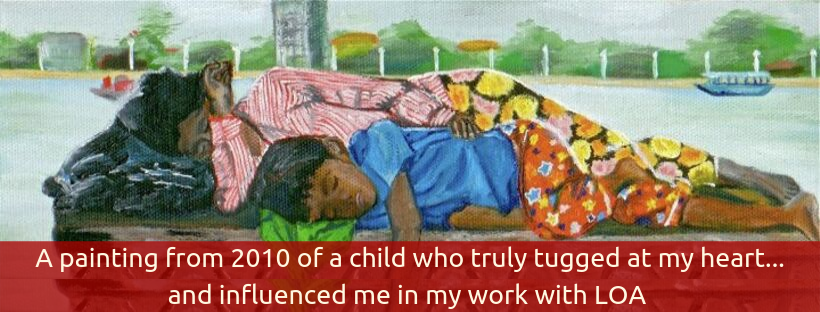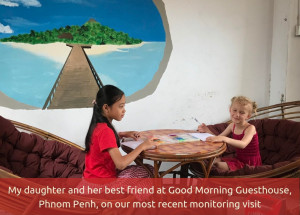
On World Tourism Day, it is important to reflect on our impact as tourists in a country like Cambodia. I lived in Cambodia for six years and witnessed the incredible growth of tourism over that time – it went from a relatively unknown “exotic” location, to the next Bali for many Australian tourists. This sounds bad but it doesn’t have to be. The United Nations World Tourism Organisation (UNWTO) believes that tourism can “spearhead growth… improve the quality of people’s lives, support environmental protection, champion diverse cultural heritage and strengthens peace in the world”. Now that sounds amazing, but it also comes with a warning that more planning and careful thought is needed about the growth of the tourism sector as tourism doesn’t inherently lead to sustainable development. Cambodia is a prime example of where tourism growth has had very mixed consequences, and we as potential tourists need to be aware of the impact we are going to have.
Voluntourism
By now surely you have heard the term “voluntourism”. The concept of making your holiday count is something that has struck the mind of almost every tourist I have met in Cambodia. When you see skinny children with matted hair sleeping by the river, waking to beg for money or sell woven bracelets and postcards, its hard to ignore the emotional pull to help – but behind each of these children on the street is someone taking their earnings, keeping them practically enslaved, there is a child missing out on an education, there is a child who will likely turn to glue sniffing once their “cuteness” wears off and they are finally released to fend for themselves. In fact, Friends International has lead major campaigns encouraging people to never buy from children, yet a walk along Riverside shows that either the message never got through, or the tug of the pleading eyes overthrows tourists’ rational thought on the matter, and they give in. What difference is one bracelet going to make anyway?
Cambodia has capitalized on our instinct to help when we see something that unsettles us. Begging on the street is nothing compared to the number of orphanages housing poor, sad children who need a westerner to come and save the day… for a few days. Volunteering organisations thrive despite years of campaigning by the likes of Friends International and the “Rethink Orphanages” movement. So what’s the problem? “Surely something is better than nothing” an Australian tourist asked me on my most recent monitoring visit.
But the reality of our good intentions is that over 80% of children in orphanages are not orphans. They have been coerced, rented, sold or even stolen from rural families living in poverty. This is trafficking.
I have been one of these good intentioned tourists. I spent a week “teaching English” in an orphanage in Vietnam. I was completely out of my depth and realised almost immediately that this was not appropriate for me or for the children, but their teacher took the opportunity to disappear for a break and I was stuck. From that moment on I have carefully questioned any volunteering I have done, and continue to question how Lotus Outreach Australia is positioned in terms of voluntourism and the protection of children in Cambodia.
Because in the end it is about child protection. In Australia, tourists cannot walk into a school or a foster home to play with the kids and take photos, because we value the safety of our children and the right for them to have a normal childhood. The dangers for children in orphanages goes beyond the severe emotional and psychological trauma however, with numerous orphanage owners or operators being arrested for sexually abusing children in their care. Children are also at further risk of being trafficked from orphanages into the sex trade.
Volunteering is good. Voluntourism is not. What can I do?
- Australians can look into volunteering opportunities through the Australian Volunteer Program, the Australian Government funded program, which is meticulously monitored. It matches volunteers with specific skills to organisations who require specific support for longer term assignments.
- You can enjoy your holiday overseas and then volunteer your time in Australia to an organisation needing your skills. Lotus Outreach Australia for example, will always welcome people who volunteer to develop and run fundraising activities.
How can I help while I’m on holiday?
- Tourism itself can boost economies and change peoples lives. Try to remember this when you are haggling over $1 at the markets or with a tuk-tuk driver. Your cheap holiday can feed their family. My very good friends at Good Morning Guesthouse in Phnom Penh and Kampot were tuk-tuk drivers when I arrived in Phnom Penh in 2010. Now they run three successful businesses – all through their efforts driving tourists around. They now support us when we do monitoring visits for Lotus Outreach Australia.
- Visit training restaurants. In Phnom Penh, Friends and Romdeng (Street 13 and 174 respectively) are run by Friends International and operate as hospitality training centres for children who have left the street. In Battambang, Jaan Bai was set up as part of Cambodian Children’s Trust, with profits going towards their child protection activities. In Siem Reap, you may even be served by one of our own LOA graduates who are studying hospitality at Sala Bai.
- You don’t have to visit an NGO run restaurant to be benefiting the community either. Businesses like “The Shop” on St 240 (one of my favourites), has built its own little family. Staff have been working there for longer than I lived in Cambodia, evidence that they are well cared for, well treated and truly part of the family. The Shop hires staff who have graduated from hospitality training programs similar to those our scholarship girls attend.

Be informed
The theme of this year’s World Tourism Day is “Tourism and the Digital Transformation”. We are so fortunate to be able to research our holidays before we travel – the more aware we are, the more responsible we can be. A great place to start before visiting Cambodia is the child safe website, offering seven tips for travellers, and the DFAT smart volunteering site.
Cambodia is a beautiful country with much to offer – let’s all be responsible tourists and work together to protect Cambodian children.
Charlie Cristi
(In-country Liaison Officer)

